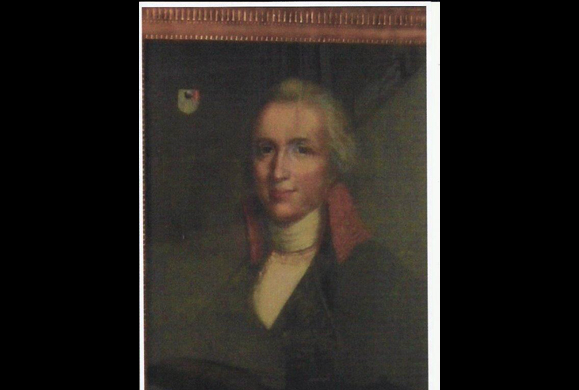As we struggle with the magnitude of the recent terror attacks in Paris and live with the renewed fear of attacks here at home, we all find personal ways of coping. Mine is to reflect on the past and the great tragedies that we have overcome; to remind myself that life goes on.
Jim Clerkin, the subject of our cover story, responded to the devastating news by flying to Paris to be on the ground with his French colleagues. It’s the sort of thing you would expect from Clerkin, the North American head of Moët Hennessy, who is based in New York. He grew up in Northern Ireland during the worst of the Troubles, and knows that you can’t let terror reign over your daily life.
Just days prior to the attacks, the Irish America team had the pleasure of visiting the Moët Hennessy headquarters on Manhattan’s west side. It was an opportunity to talk about French Irish connections, and the close associations – cultural, political, and intellectual – that we have enjoyed throughout our history: from the Wild Geese through WWI and beyond.
France was a haven of refuge for the Irish during Britain’s attempt to colonize the island, which began when Anglo-Norman troops arrived in Wexford in 1169.
Denied the opportunity to practice Catholicism in the subsequent occupation, the Irish found religious freedom in France. And in turn, they contributed to the French nation in a number of ways, not least of which was militarily.
Irish regiments fought for France in the 16th, 17th, 18th, and 19th centuries. One of those soldiers was Richard Hennessy, who at the age of 20, joined the Army of King Louis XV. Injured at the Battle of Fontenoy, he settled on the banks of the Charente River and there he founded the Hennessy cognac distillery in 1765.
One of my relatives had also been a soldier in France, and my visit to Moët Hennessy prompted a Google search that turned up some interesting information on my long-ago ancestor Oliver Harty.
Born on December 2, 1746, Oliver left Ireland for France as a 16-year-old to join the Berwick Regiment. He went on to a distinguished military career but never forgot his Irish roots. In the French attempt to free Ireland of British rule, his was one of the few French ships to land at Bantry Bay in 1795. When the attempt to rout the British failed, Oliver returned to France and went on to play a part in the Napoleonic campaigns. And “for his courage and gallantry” he was created Baron de Pierrebourg by Napoleon on June 30, 1811.
Intrigued, I wondered how best to make a connection with Oliver’s descendants – over the years we’ve had some limited correspondence. Alas, with a pressing print deadline, I decided further research would have to wait.
I turned my attention to this issue and a story by Megan Smolenyak our Roots detective. Megan and I often talk about the unusual amount of serendipity she encounters during her genealogical research. The surprising ways that ancestors have of coming through to us is nothing new to me, but here I was surprised a few days later to receive an e-mail with the subject line, “The Baron de Pierrebourg.”
Had I conjured Oliver up? Perhaps it was that sip from the special bottle of Hennessy X.O that did the trick? The writer of the missive was Cécile Déjardin, a French historian who had recently met with Monsieur Olivier de Pierrebourg – Oliver Harty’s descendant; “Is it possible that there is a family connect?” In a subsequent e-mail Cécile included a portrait of Oliver Harty thought to have been painted around the time of the Bantry Bay expedition in 1795. The family resemblance is striking. It’s remarkable to see that the Harty nose has been passed down through the generations!
Then came the news of the Paris attacks. “It’s hard to think properly today after having seen this violence in Paris, next door,” Cécile wrote, adding, “Messages of concern from my Irish friends have been delivered since this morning: this helps a lot.”
And so it is that I find myself turning to the past for consolation.
From the Irish Famine Memorial in lower Manhattan you can look out over New York Harbor and see the Statue of Liberty, France’s gift to America in celebration of democracy. This comforting sight welcomed so many Irish refugees to America, people who had no choice but to leave their homeland in order to survive. Let us hope that as we consider the plight of today’s refugees from Syria, we will be guided by this French torch of enlightenment and act, not with fear, but with compassion; and respect for those who came before us. ♦
First Word: The French Connection


I couldn’t refrain from commenting. Perfectly written!
How do i find out if my name is french! Can someone direct me, please. Thankyou.
Loved reading this article! Would love to read more!
Hi ! As you can see, my name is Juliette Harty de Pierrebourg, I’m also one of Oliver Harty’s descendants (Olivier Harty de Pierrebourg’s grand-daughter). I am a little late to this post, and stumbled upon it by accident, but I am glad to see that there still is a Harty family that honours our ancestor’s memory. If you need any information on this side of the family, I would be glad to help.